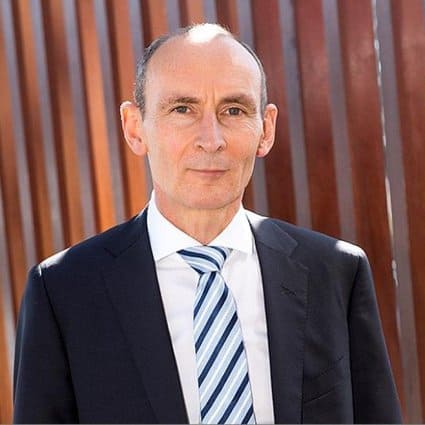Nigel Green – CEO of deVere Group – believes the Russia-Ukraine conflict could be the catalyst that propels a surge for BTC’s price. The exec suggested that bitcoin reaching $50,000 by the end of March is not out of the question.
BTC to Gain Traction Because of the War
Despite the Russian invasion of Ukraine and the peace uncertainty across Europe, bitcoin’s price started climbing recently. The asset’s USD value is up by more than 15% over the last five days, as many argue that this increase is a result of the financial sanctions imposed on Russia and the following crash of the ruble.
A supporter of that idea is the CEO of the financial advisory firm deVere Group – Nigel Green. He opined that the military conflict has caused “significant financial upheaval,” and companies, individuals, and government agencies started looking for alternatives to traditional monetary systems.
“As banks close, ATMs run out of money, threats of personal savings being taken to pay for the war, and the major international payments system SWIFT is weaponized, amongst other factors, the case for a viable, decentralized, borderless, tamper-proof, unconfiscatable monetary system has been laid bare.”
Assuming the Western world keeps imposing penalties on Russia, bitcoin might tap $50K by the end of the month, Green forecasted. However, he said it is too early to believe that the primary cryptocurrency could reach its all-time high of nearly $70,000 registered in November 2021.
It is worth noting that deVere Group’s CEO has been quite accurate in his previous forecasts. Last summer, he predicted that bitcoin could “hit or even surpass” its all-time high of $65,000 by the end of 2021.

Crypto’s Role During the War
Digital assets have been involved in the Russian-Ukrainian dispute as numerous companies and individuals donated crypto to aid Ukraine’s defense. Contributions surpassed $35 million, while some of the renowned people that took part include Polkadot’s Founder – Gavin Wood. He sent $5 million worth of DOT to the Ukrainian government.
Apart from Polkadot, the authorities accepted donations in Bitcoin, Ethereum, and Tether. Yesterday, Mykhailo Fedorov – Vice PM and Minister of Digital Transformation of Ukraine – added Dogecoin and Solana to the list of cryptocurrencies that can be sent as contributions.
Nevertheless, many expressed concerns that Russia could employ the asset class, as well, to bypass financial sanctions implemented by the West. Ripple’s CEO Brad Garlinghouse, though, explained why such a scenario is hard to occur.
In his view, cryptocurrency exchanges are highly professional and work with banking partners. They have established several stringent measures, including strict know-your-customer (KYC) and anti-money laundering policies to prevent bad actors from using such services.